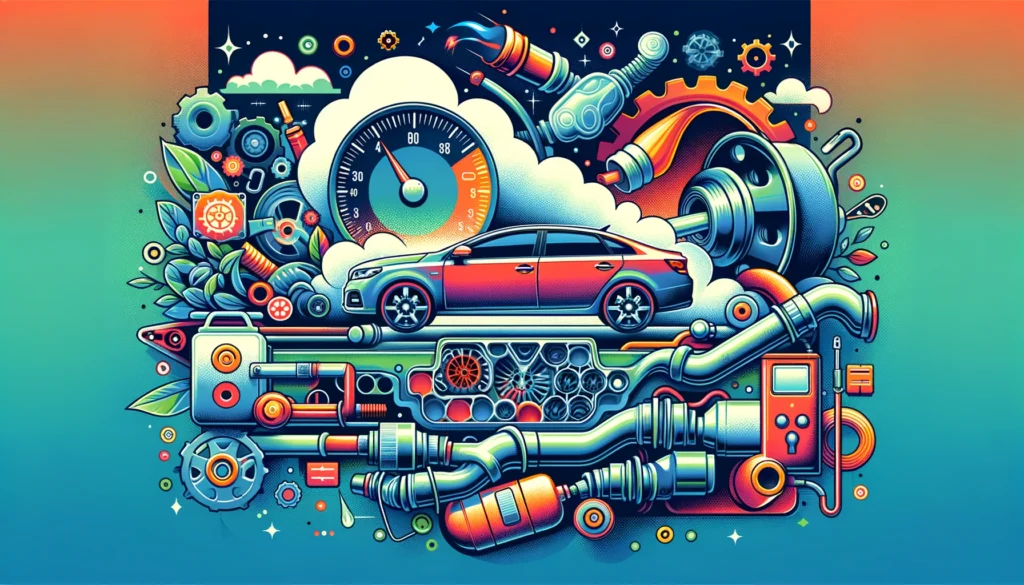
In the quest for optimizing vehicle performance, a common inquiry that arises is “Does Removing a Catalytic Converter Increase Fuel Consumption?“. This article is all about this, providing a comprehensive exploration backed by technical insights and practical advice. Our aim is not just to inform but to guide you through making an informed decision about catalytic converters and fuel efficiency.
Understanding the Catalytic Converter
Before we dive into the effects on fuel consumption, let’s understand what a catalytic converter does. A catalytic converter is a crucial component of the vehicle’s exhaust system that reduces harmful emissions. It converts toxic gases and pollutants from the exhaust into less toxic pollutants by catalyzing a redox reaction (oxidation or reduction).
The Role of the Catalytic Converter in Fuel Efficiency
Contrary to common belief, the catalytic converter plays a minimal direct role in a vehicle’s fuel efficiency. Its primary function is emission control. However, its presence or absence can influence engine performance and, subsequently, fuel consumption.
Impact on Fuel Consumption: The Debate
The central question is: does removing the catalytic converter increase fuel consumption? The answer is not straightforward and requires understanding the dynamics of a vehicle’s engine and exhaust systems.
Increased Exhaust Flow and Engine Performance
Removing the catalytic converter results in increased exhaust flow. This is because the removal eliminates the restriction that the converter imposes on the exhaust system. In theory, this can lead to a slight improvement in engine performance and efficiency because the engine can breathe easier and expel exhaust gases more freely.
But Here’s the catch:
While removing the catalytic converter might improve exhaust flow, it doesn’t necessarily translate to better fuel consumption. Here’s why:
- Engine Tuning and Calibration: Modern engines are finely tuned and calibrated for their original configurations, including the presence of a catalytic converter. Removing it can disrupt the engine’s air-to-fuel ratio and timing, potentially leading to less efficient combustion and, ironically, increased fuel consumption.
- Oxygen Sensors and Engine Management Systems: Vehicles equipped with oxygen sensors and sophisticated engine management systems might adjust the air-to-fuel ratio in response to changes in exhaust system backpressure, leading to unintended alterations in fuel consumption.
Step-by-Step Guide: Considering the Removal of a Catalytic Converter
Step 1: Understand the Legal and Environmental Implications
Removing a catalytic converter is illegal in many jurisdictions due to its role in controlling vehicle emissions. Ensure you understand the legal ramifications in your area before proceeding.
Step 2: Consult with a Professional
Before making any modifications to your vehicle, consulting with a professional mechanic or automotive engineer is crucial. They can provide insights into how the removal might affect your specific vehicle model.
Step 3: Consider the Alternatives
If your goal is to improve performance or fuel efficiency, there are legal and safer alternatives to removing the catalytic converter. Consider performance upgrades that are compliant with emissions standards.
Step 4: Monitor Fuel Consumption
If you decide to proceed (where legally permissible), monitor your vehicle’s fuel consumption closely. Use this data to assess the impact of the removal on your fuel efficiency.
Conclusion: Weighing the Pros and Cons
While the allure of improved performance from removing the catalytic converter may be tempting, it’s essential to consider the broader implications, including potential increases in fuel consumption, legal issues, and environmental impact. For most drivers, maintaining the catalytic converter and exploring other performance enhancements might be the more prudent choice.
In conclusion, the decision to remove a catalytic converter should not be taken lightly. It requires a careful consideration of the potential benefits against the legal, environmental, and, yes, fuel consumption implications. Always seek professional advice and consider the long-term impacts of such modifications on your vehicle’s performance and efficiency.



Pingback: How to Gap Spark Plugs without Tool: A Step-by-Step Guide for DIY Enthusiasts - MovingVolts
Pingback: How Many Fuel Injectors Does A Car Have? - MovingVolts
Wonderful post however I was wanting to know if you could write a litte
more on this subject? I’d be very thankful if you could elwborate
a little bit further. Kudos! https://odessaforum.BIZ.Ua/